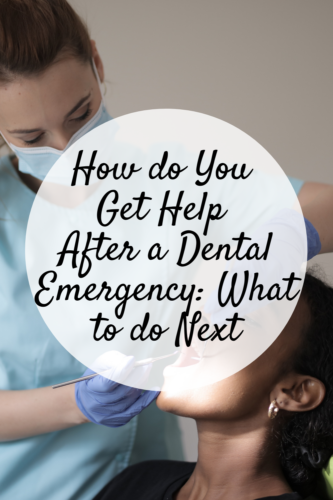
Experiencing a dental emergency can be frightening. It is important to note that not all dental issues are true emergencies. Knowing the difference is important. It is also essential individuals know the steps they should take after a dental emergency. With this guide, a person will be prepared fully.
Is a Toothache a Dental Emergency?
Sometimes, a toothache is a dental emergency, but not always. When a toothache strikes, individuals need to know what is causing it before they determine if they need an immediate dental appointment. It is important to call the dentist for help with a toothache. The dentist will help a person know if they need to seek further dental care. The dentist will also offer help after a dental emergency.
Common Dental Emergencies
Multiple dental issues can arise and cause a person to experience pain and other symptoms. Individuals must be aware of the types of dental emergencies that can arise so they can take action. The following are some of the most common dental problems that require an immediate appointment with the dentist.
- Tooth injuries often require immediate intervention. If the tooth is broken off or knocked out, individuals need to seek the dentist right away. Sometimes, the tooth can be saved, depending on the severity of the injury.
- If a person finds their tooth is abscessed, it is time to seek immediate medical attention from the dentist. An abscess is serious and should never be ignored. The pain from the abscessed tooth can become unbearable. As the infection worsens, a person’s jaw will begin to swell, and they could end up running a fever.
- Uncontrollable bleeding in the mouth is also a dental emergency. It is important to find the source of the bleeding and get it under control. If the bleeding is caused by facial trauma, an individual may need to go to their closest emergency room.
What To Do In a Dental Emergency
Taking the right steps during a dental emergency is essential for a person’s oral health. When individuals take the right steps, they will be able to control their pain and prevent any additional damage. The following offers some important tips that can help.
- If there is any bleeding, it is important to attempt to stop it right away. Placing pressure on the bleeding area should make it start to clot. If the bleeding does not stop after a few minutes, seek medical care.
- Should a person experience a broken tooth, it is important to try to find the broken piece and save it. If the broken tooth is a baby tooth, there is no reason to save the tooth because it will need to be extracted.
- If a tooth is knocked from the socket with the roots intact, it is important to rinse the tooth with cool water and place it in a cup of milk. Never scrub or touch the root end of the tooth. The dentist may be able to put it back in the socket.
Seek Regular Dental Care
Seeking regular dental care is essential for good oral health. The dentist will offer a range of services, including those that are for preventative care. By seeing the dentist regularly, individuals are more likely to experience good oral health and be able to avoid major concerns like cavities and gum disease.





Leave a Reply